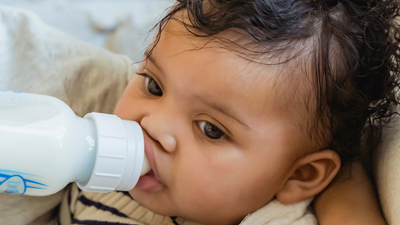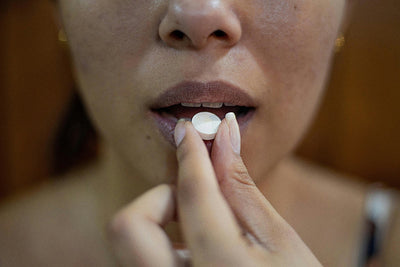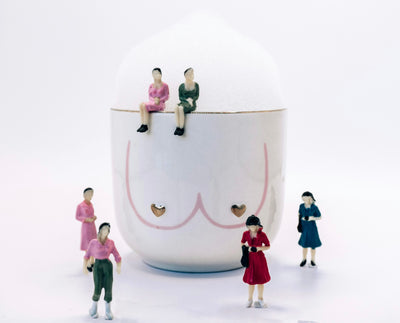Think Twice Before Letting Your Baby Sample Solid Foods While Breastfeeding
Think Twice Before Letting Your Baby Sample Solid Foods While Breastfeeding
by Katie Black
You might unknowingly be cutting your exclusive breastfeeding short.
The title may sound a little extreme-surely there’s no harm in letting your nursing baby sample the odd solid food here and there, right?
Recent research published in the International Breastfeeding Journal would disagree.
In 2011, the National Food Agency in Sweden told parents it was fine to let infants four months of age and older to sample solid foods. They called them “tiny tastings” (1 ml of solid food or less). This was different from the World Health Organization’s recommendations, so researchers set out to see if these tiny tastings may have adverse effects, namely if it led to stopping breastfeeding early.
In January of 2023, they published their study called, “The Association Between Early Introduction of Tiny Tastings of Solid Foods and Duration of Breastfeeding”. The researchers hypothesized that tiny tastings correlated with shorter durations of breastfeeding.
They used data from the Swedish Pregnancy Planning Study that included three questionnaires given to 1251 moms up to one year after giving birth. They then analyzed the link between introducing solid foods, and time spent breastfeeding.
Results
The study found five factors that have a negative effect on the time spent breastfeeding. They were:
- Low infant age when introducing tiny tastings
- Low maternal age
- Low level of maternal education
- High maternal BMI
- Giving birth to twins
The median age for introducing solid foods was four months, while tastings (5-10 ml of solid food) were most common during the sixth month of age. More infants were fed with solid food than breast milk during the seventh month and beyond.
Their analysis showed that the age when tiny tastings (1 ml) were introduced was associated with the age when food (15 ml or more) was introduced, i.e. the earlier the infants started with tiny tastings, the earlier they ate larger amounts of solid foods.
Conclusions
While there are several factors that affect how long a mom breastfeeds (many of which are hard to change or influence), the study noted that Sweden’s official information on breastfeeding and tiny tastings can change and be influenced and should reflect scientific findings. Officials should be doing more to encourage breastfeeding.
The World Health Organization recommends exclusive breastfeeding for the first six months of life, and unnecessary early tastings might negatively impact that goal.
Some of the reasons cited for adding solid foods before six months are that it protects babies from developing food allergies. However, research hasn’t found evidence of any benefits from adding solid foods before six months, nor any risks related to morbidity or weight change. Another common concern about exclusive breastfeeding for six months is the risk for iron-deficiency anemia. But the risk can be greatly lowered by delayed umbilical-cord clamping.
If you have any concerns about your own breast milk, and are unsure if you should introduce formula or solid foods to your baby, why not get your milk nutritionally tested here. A lot of the time a mom’s milk is more than enough.
Sources:
https://internationalbreastfeedingjournal.biomedcentral.com/articles/10.1186/s13006-023-00544-6
Image by Hui Sang, Unplash






